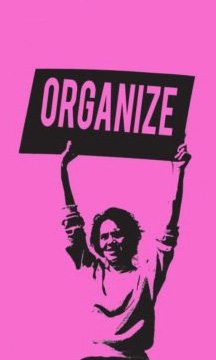César Chávez, the biopic of the Chicano labor leader and civil rights activist directed by Mexican director/actor Diego Luna, hit theaters nationwide last year to a mixed reception of acclaim and criticism. While some critics pointed out the historical inaccuracies that exist throughout the film, most focused on Luna’s near-omission of Filipino farmworkers, and the peripheral roles given to the women of the movement. Unfortunately, this is not uncommon among biopics, which often end up idolizing the individual and losing sight of the historical moment and its key players.
While these criticisms should certainly not be taken lightly or swept under the rug in order to promote an artificial and airbrushed version of César Chávez or the movement, they should also not be used to undermine the importance of the film in bringing this history to the masses and reminding us of what is possible when we come together to fight for justice. In fact, these critiques need to be brought to light and opened up for collective discourse so that we may grasp the true significance of this historical moment and learn from it.
Again, although the film certainly falls short of doing the historical events justice, the significance of the farmworkers’ struggle for fair wages, adequate working conditions and union recognition should not be undermined. And yet, three invaluable lessons are routinely overlooked when recounting this historical moment because of the film’s glaring omissions:
- There is no movement without women.
- A united working class can take on the ruling class and win.
- Workers’ interests are the same here, there and everywhere.
The success of the movement would not have been possible without the leadership of women like Dolores Huerta and Helen Fabela Chávez, as well as the participation of thousands of women farmworkers who sacrificed so much, risked everything fighting for the cause, all while taking care of their families.
Additionally, it was the hard work of women organizers across the country that made the boycott a national and eventually, an international cause. Long overdue is the recognition of women’s role in the class struggle as essential because without these women, there would not have been a movement, let alone a victorious one.
Likewise, the nationwide movement that we are witnessing today of low-wage workers fighting for living wages is largely comprised of and being led by women. Most of whom are women of color, including many who are undocumented (and unafraid). A victory for low-wage workers means a victory for the entire working class, and there cannot be a successful movement without the participation of women. This is not at a new development—it is a transhistorical fact.
Furthermore, despite cultural differences (and the conflicts that arose from them), the farmworkers’ struggle for justice showed to the country (and the world) that solidarity among workers of different races and nationalities (Mexican, Filipino, White) was not only possible, but essential in securing a victory against the tyrannical growers who enjoyed the full support of the ruling class and its racist institutions. And although the film does a poor job at depicting this, the fact remains that without the integration of the largely Filipino Agricultural Workers Organizing Committee (AWOC) and the National Farm Workers Association (NFWA), which was comprised mostly of Chican@ and Mexican workers, there would not have been a movement large enough to take on the growers. Omitting or downplaying the contribution of the Filipino farmworkers does a disservice to their legacy as well as to the movement, and is detrimental to class struggle.
Likewise, another lesson that the farmworkers’ struggle reminded the world that workers’ interests are the same here, there and everywhere. From multi-ethnic California farmworkers to European dock workers —who in solidarity with their working-class brothers and sisters refused to unload the grapes shipped across the Atlantic— the power of working-class solidarity transcends spatial or artificial divisions.
These oft-forgotten lessons can (and should) inform our current struggles. From the immigrant rights’ movement to the fight for a living wage, workers everywhere should look to this historical moment to learn how essential women, international solidarity and a united working class are in any struggle for justice. Moreover, it is absolutely necessary that we stop idolizing our leaders as infallible gods, and recognize them as the fully human beings that they were and are—flaws and all. Only then will we be able to better see our own selves as capable of doing great deeds, which collectively can finally lead us to liberation.
***
Crystal Stella Becerril is a Chicago-based Xicana activist, writer and hood scholar. She’s currently an editor at Red Wedge Magazine and a contributing writer for Socialist Worker, In These Times, and Warscapes where she writes about race, feminism, education and the intersection of politics and culture. Find her blog at LaMarxista.com.




